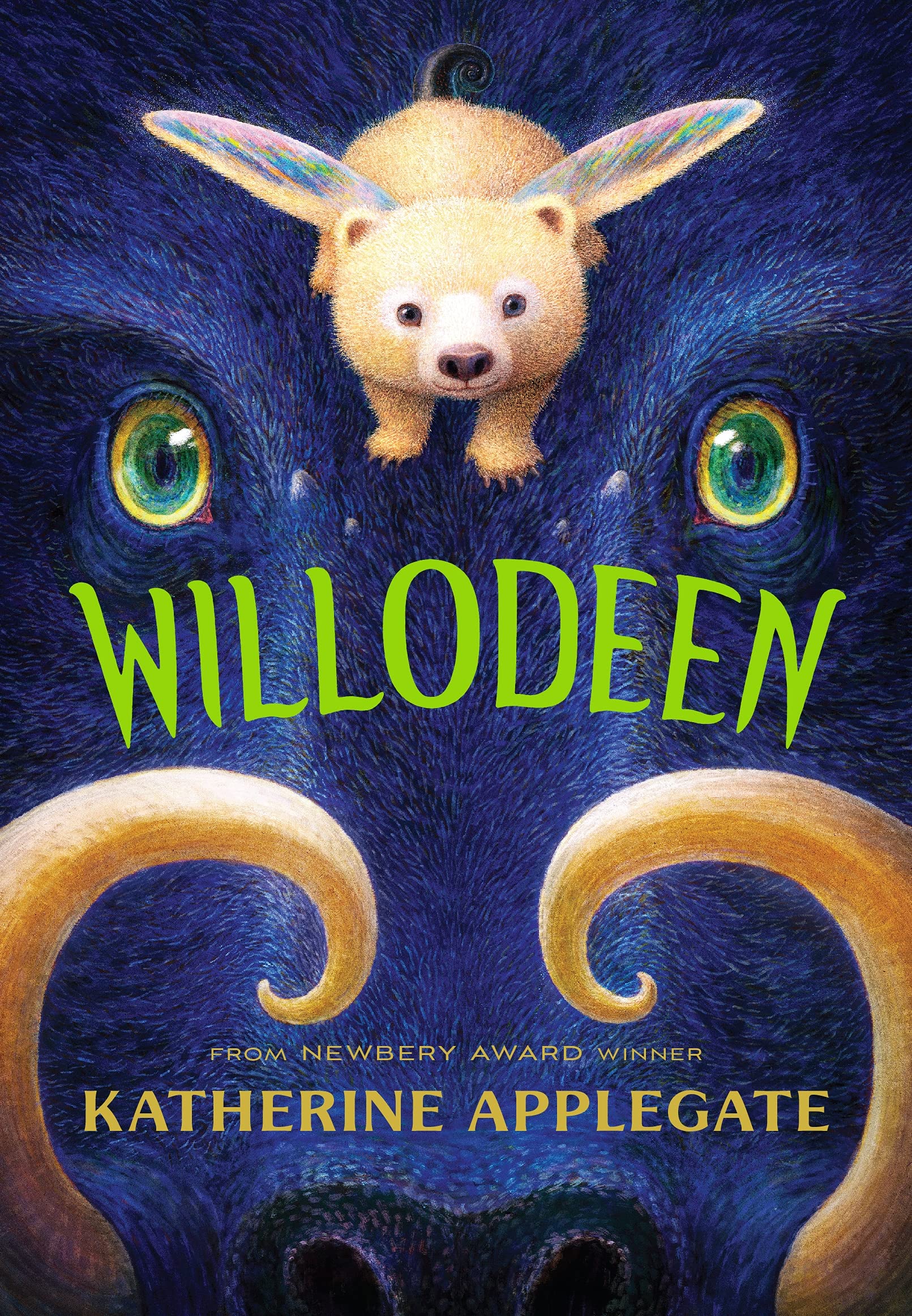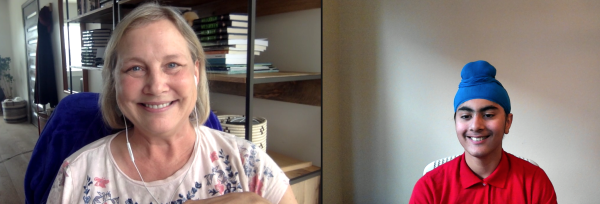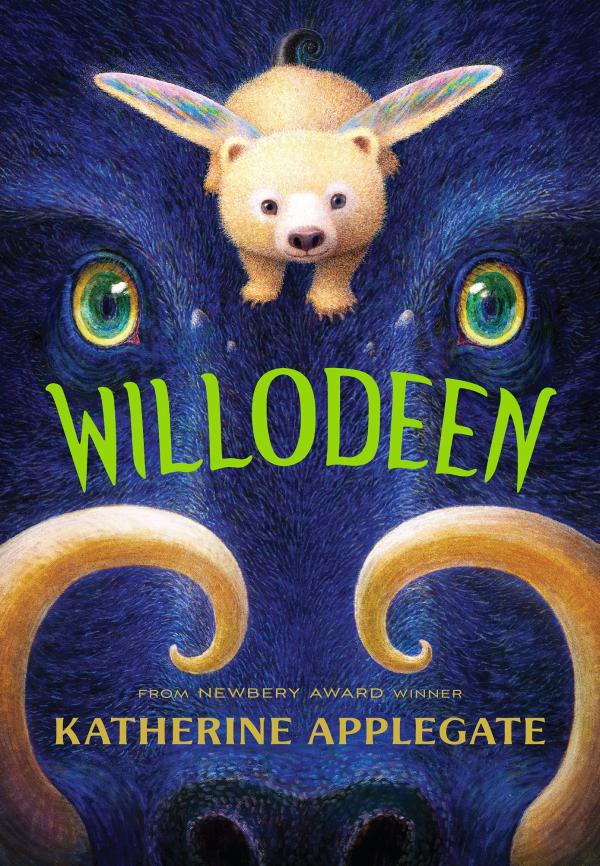KID REPORTERS’ NOTEBOOK
A Conversation With Katherine Applegate


Munveer talks with award-winning author Katherine Applegate via video.
I recently spoke with acclaimed children’s book author Katherine Applegate via video. Applegate won the 2013 Newbery Medal for The One and Only Ivan, a middle-grade novel about a silverback gorilla whose unlikely friendship changes his life.
Applegate has written dozens of best-selling titles for young people, including the Roscoe Riley Rules and Everworld series. I asked her about her life as a writer and her latest book, Willodeen. The novel tells the story of an 11-year-old girl who adores all creatures, even strange ones, and tries to save the despised “screecher” species from going extinct.
I learned a lot about the writing process and Applegate’s day-to-day life from our conversation. The highlights below have been lightly edited for length and clarity.
What inspired you to write Willodeen?
I was thinking about my next book and how we have coyotes where I live. We, as humans, have this weird, uncomfortable relationship with nature within our urban environment. So I wanted to write about this weird relationship and climate change at the same time. Every time I go to schools, I’m shocked and encouraged that kids seem to be so aware of the problem and that they are doing what they can to help fight climate change in their own backyards.
What do you hope readers will take away from the book?
I feel that each reader should come to a conclusion as they please. They should make their own opinions. My goal isn’t to dictate what the next chapter of the story would be. But one quote from Greta Thunberg that I put at the beginning is a conclusion that I hope all readers will reach at one point or another: “You are never too small to make a difference.”

Applegate’s latest novel tells the story of an 11-year-old girl who speaks up for the animals she loves.
What stood out to you while writing the book?
The day I turn in a book is probably one of the most important moments during the writing process. It’s always a joyful moment. You’re never really done with a story. I could pick up any one of my books and rewrite them frantically. And I think that’s true for most writers. You just have to hit a point where you say, “OK, it’s good enough.” When you do turn it in, it feels incredible.
Do you have a plan for your books ahead of time, or do you make up the plot as you go along?
There is an ongoing debate between writers. There are definitely writers who just sit down to write and go along with the book’s flow. Then there are writers who plan out every part of the book in advance and know every last word before writing. I’m somewhere in the middle since I like to have some guidance. Otherwise, I get lost. But I also like to have the option to change certain parts as I see fit.
What does your daily schedule as a writer look like?
It’s a lot of telling yourself that you need to sit down and get it done. I have a hard time focusing, and I use a [time-management] method known as the Pomodoro Technique, where I work and then take a break. It helps me get the flow going. The hardest part is that you don’t have anyone else telling you what to do. If you want to blow things off and watch Netflix for a whole day, nobody is going to stop you. I think the hardest thing is keeping yourself on task.
Why do you choose to write for children?
I like writing for children since they tend to give much more honest feedback compared to adults. They tell you what they love and what they don’t. In addition, children are at a point where they are understanding the world. To be a part of that understanding is a privilege and an honor.
